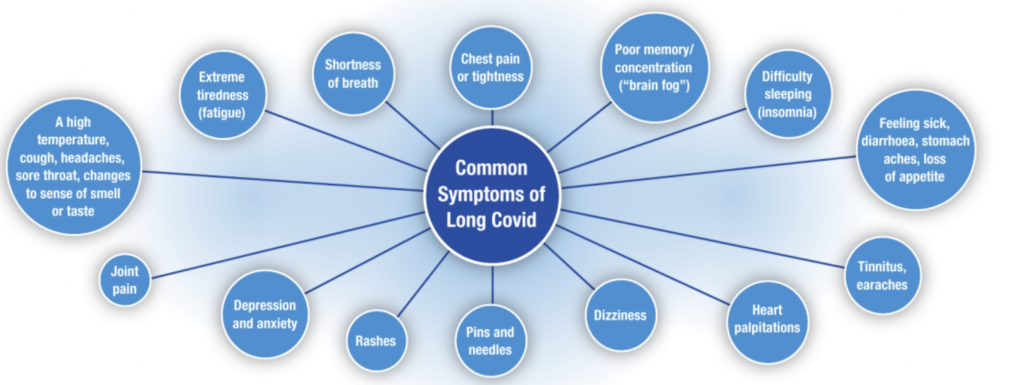Long Covid – what to do?

What is Long COVID?
Long COVID, also known as ‘post-acute sequelae of COVID’ (PASC), is classified by NHS into 2 subsets:
- Ongoing symptomatic COVID: symptoms continue for more than four weeks.
- Post-COVID syndrome: symptoms continue for more than twelve weeks and cannot be explained by any other condition.
The office of National Statistics (ONS) has estimated 1.5 million people in private households in the UK to be currently experiencing self-reported long COVID (as at 3 March 2022). Whilst this means that practitioners are likely to see individuals presenting with symptoms, the condition remains poorly understood.
The ONS also gives information on the length and severity of symptoms, reporting 71% of long COVID suffers first had COVID-19 at least 12 weeks previously and that as many as 45% first ha COVID at least 12 moths previously and therefore been suffering for a year or more. What’s more, 18% report their ability to undertake their day-to-day activities is “limited a lot”.
The more common symptoms reported in the ONS survey are fatigue, followed by shortness of breath, then loss of smell, and difficulty concentrating. The prevalence appears to be greatest in people aged 35 to 49 years, females, people living in the most deprived areas, those working ain teaching and education, social care or health care, and those with another activity-limiting health condition or disability.
Long Covid -what to do?
- Get help from you GP
- Try multivitamin and mineral supplements and Vitamin D
- Eat well and sleep well and stay active as much as possible
- Try to visit https://www.yourcovidrecovery.nhs.uk

020 7272 1850
179 Seven Sisters Road, London N4 3NS
ask@aptekachemist.co.uk
Opening times:
Monday – Friday 9am - 7pm
Saturday – 9am - 1pm
Sunday closed
